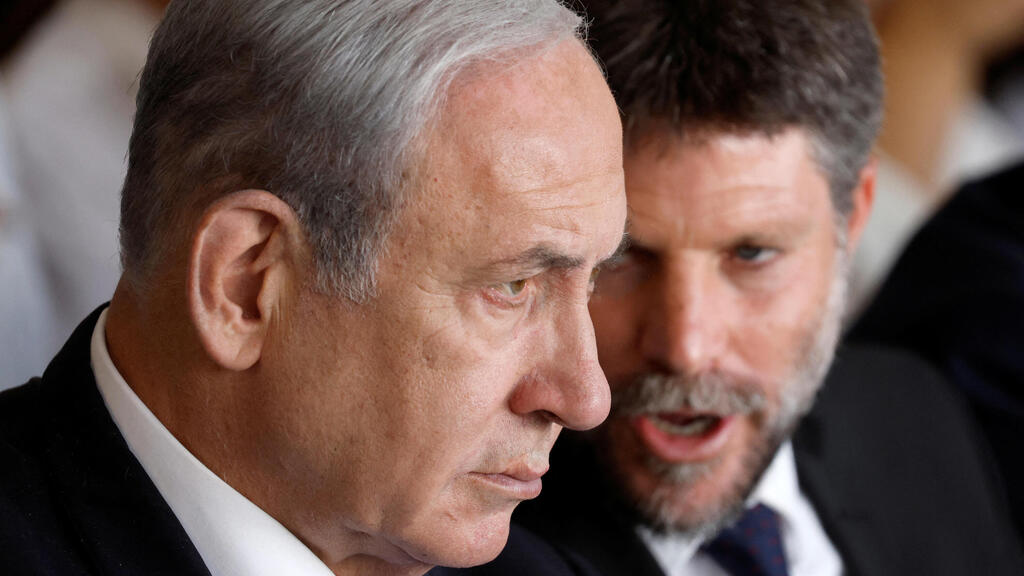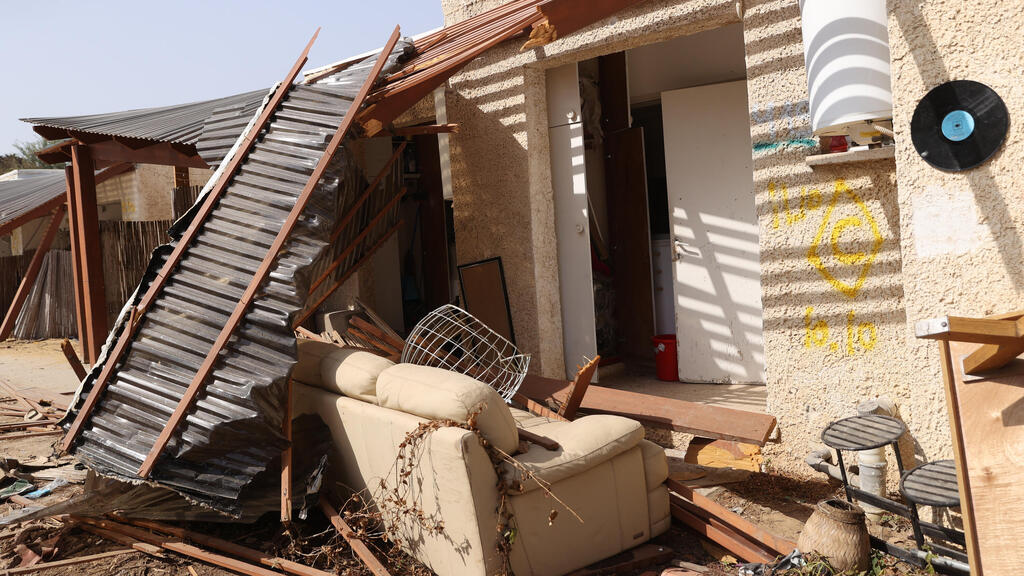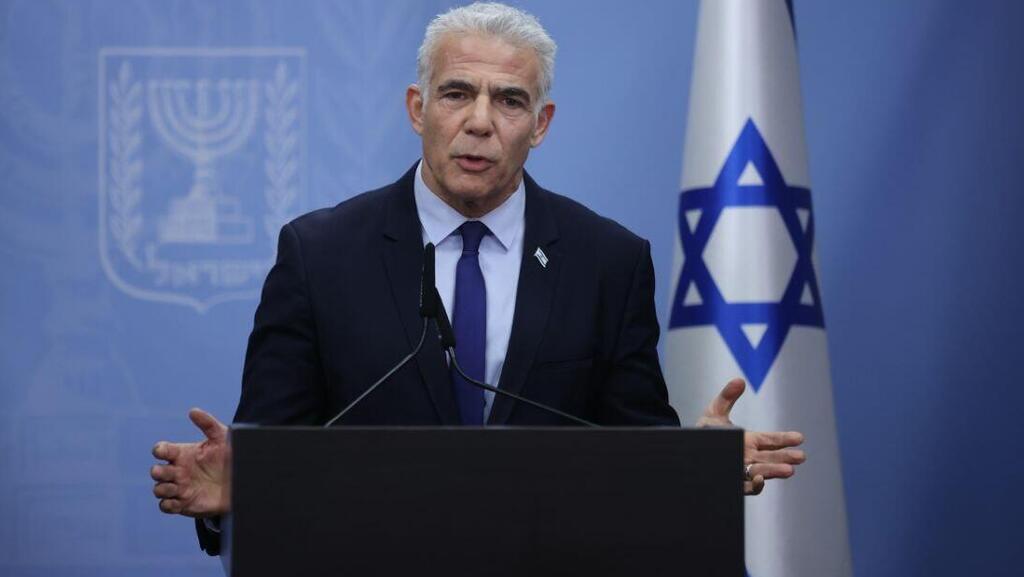The government overnight Tuesday approved an amended state budget for 2023 due to the war in the Gaza Strip, despite opposition from some ministers over only partial cuts to funds earmarked for coalition parties.
Read more:
Some members of the ruling Likud Party and ministers from the National Unity Party, who joined the coalition after the war began, expressed their dismay over the allocation of so-called coalition funds, with some assigned to fund West Bank settlements and ultra-Orthodox institutions, rather than diverting them for the war effort as promised by Prime Minister Benjamin Netanyahu and Finance Minister Bezalel Smotrich.
3 View gallery


Prime Minister Benjamin Netanyahu and Finance Minister Bezalel Smotrich
(Photo: Amir Cohen / Reuters)
National Unity lawmakers, including party leader Benny Gantz, walked out of the Cabinet meeting after leaving their "nay" vote in writing.
"While hundreds of thousands of Israelis are serving either in reserves or to fulfill social needs, entire sectors are closed, many are furloughed and the deficit grows, the government must provide an example," Gantz wrote in a letter to Netanyahu ahead of the vote. He accused the prime minister of increasing funds to ultra-Orthodox institutions in contradiction to commitments made.
Gideon Sa'ar, also a National Unity lawmaker and a former justice minister who remained at the meeting, said there could have been a compromise presented to ministers that would have better reflected the needs of the economy and the good of the country at this time. "Unfortunately, that was not the case," he said. "We are entering a difficult economic period with much unknown. The government must be able to provide for security needs as well as civilian needs in war."
Netanyahu told ministers the budget reflects his commitment. "We are approving a huge NIS 30 billion budget for a period of six weeks to fund the war," he said.
The prime minister insisted that funds would be directed toward the military, police, health and social services and community security, as well as to families of fallen or wounded IDF soldiers, hostage families, evacuees from southern and northern border areas and small businesses. He also said that allocations were made for rebuilding communities devastated in the October 7 attack.
3 View gallery


A Kibbutz Kfar Aza home destroyed in the October 7 Hamas attack
(Photo: Alex Kolomoisky)
Economy Minister Nir Barkat, a close Netanyahu ally, was unconvinced and later said in a social media post that he had voted against the budget, which he believed would undercut economic growth and deliver an anti-growth message. "I hope that by the time the budget reaches the Knesset floor, there will have been a change. We must not lose the economic battle," he wrote on X.
Finance Minister Smotrich claimed he was providing adequately to the needs of the war. "We are building economic fortifications that would reconstruct public trust, care for the survivors and evacuees and for the entire economy," he said, outlining the various allocations.
"I think there is unanimous agreement over 99% of the budget," he added. "At the end of the day, it is important to present a unified position to the citizens."
Smotrich acknowledged that there might be disagreements over a portion of the funds, but he emphasized that ministers could adjust to budget nuances to preserve unity. He criticized those opposing his proposal, accusing them of offering insufficient solutions to citizens displaced from border areas. In his address to the ministers, he did not mention the funds that continued to flow to members of Netanyahu's coalition prior to the war.
Opposition leader Yair Lapid accused Netanyahu and Smotrich of pursuing contentious policies that have stoked societal tensions since the establishment of the sitting government. "They continue to provide funds for political needs. Money that could be used by the IDF, the evacuated Israelis, funds that could help the economy that is in a freefall," he said.
After the vote, Lapid said in an X post that the government decided to leave unnecessary ministries in place and care for politics instead of funding the troops, the evacuees and small businesses strained by hostilities. "There is no shame," he wrote.




